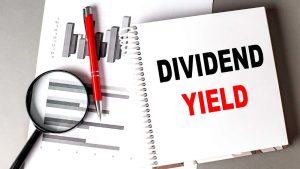Here’s how Trump tariffs could hand us some top passive income bargains


Investors looking for passive income should want steady stock markets and calm economic waters, right? I say no!
Market upheavals can offer some of the best times to snap up shares in high-quality companies at bargain prices. And we’re having one now, with the FTSE 100 down 120 points at the time of writing on 3 April in response to President Trump’s global trade upheaval.
It’s likely that we won’t really know the real effect of the Trump tariffs until well after he’s out of office. And that reminds me of when Margaret Thatcher famously exclaimed that “if you try to buck the market, the market will buck you.”
What crisis?
It was back in 1992 and she was specifically talking about… well, it doesn’t really matter. We’ve long forgotten about whatever was shaking up politicians back then. Markets shrugged it off and have kept on doing what markets do.
In the case of stock markets, that’s climbing. The FTSE 100 is worth three-and-a-half times what it was then. And we’ve had 33 years of dividends on top.
The same will surely be true of Donald Trump and his tariffs. If they work, great. If they don’t, they’ll surely be discarded and markets will move on. Upwards if history means anything.
Cheaper today
HSBC Holdings (LSE: HSBA) has long been a favourite for passive income. When the London Stock Exchange closed on 2 April, hours ahead of tariff showtime, HSBC was on a forecast dividend yield of 5.8%. With the share price down 6% at the time of writing, that’s now up to 6.1%.
It suggests the new trade environment will adversely affect the bank’s ability to pay its dividends. But I’m finding it hard to see how US import levies can do much lasting harm to a multinational banking giant. Especially one focused mainly on the Chinese economic sphere.
But then, UK-listed banks in general are down. Barclays has fallen 5.5%. Even the wholly UK-focused Lloyds Banking Group has lost 2.4%. When big investors are spooked for whatever reason, they sell bank stocks.
Dan Coatsworth at AJ Bell said “it seems as if fewer investors want to own banks despite many paying generous dividends which can provide comfort during rocky market conditions.”
Dividend outlook
When HSBC posted 2024 full-year results in February, there was enough cash for a £2bn share buyback. That was on top of lifting the full-year dividend by 43%. The bank said it intends to keep its dividend payout ratio at 50%. And with forecasters predicting a 24% rise in earnings per share (EPS) between 2024 and 2027, I’d say the passive income prospects look good.
There’s still a risk that banks will suffer from some of the tariff fallout. In fact, I think that’s probably almost certain.
But HSBC Holdings looks better value to me today, with a forward price-to-earnings (P/E) ratio of only nine. It’s near the top of my list of shares to consider for the new ISA year.
The post Here’s how Trump tariffs could hand us some top passive income bargains appeared first on The Motley Fool UK.
Should you invest £1,000 in HSBC right now?
When investing expert Mark Rogers has a stock tip, it can pay to listen. After all, the flagship Motley Fool Share Advisor newsletter he has run for nearly a decade has provided thousands of paying members with top stock recommendations from the UK and US markets.
And right now, Mark thinks there are 6 standout stocks that investors should consider buying. Want to see if HSBC made the list?
More reading
- Investors considering HSBC shares could aim for £8,453 a year in passive income from just £5 a day!
- The HSBC share price is down 7% in a month and looks dirt cheap with a P/E of just 9!
- Can I make more passive income by investing in the US or the UK stock market?
- 2 top UK passive stocks to consider before 5 April
- See how a 45-year-old could target a £4,313 monthly passive income by maxing out their ISAs
HSBC Holdings is an advertising partner of Motley Fool Money. Alan Oscroft has positions in Lloyds Banking Group Plc. The Motley Fool UK has recommended Aj Bell Plc, Barclays Plc, HSBC Holdings, and Lloyds Banking Group Plc. Views expressed on the companies mentioned in this article are those of the writer and therefore may differ from the official recommendations we make in our subscription services such as Share Advisor, Hidden Winners and Pro. Here at The Motley Fool we believe that considering a diverse range of insights makes us better investors.





